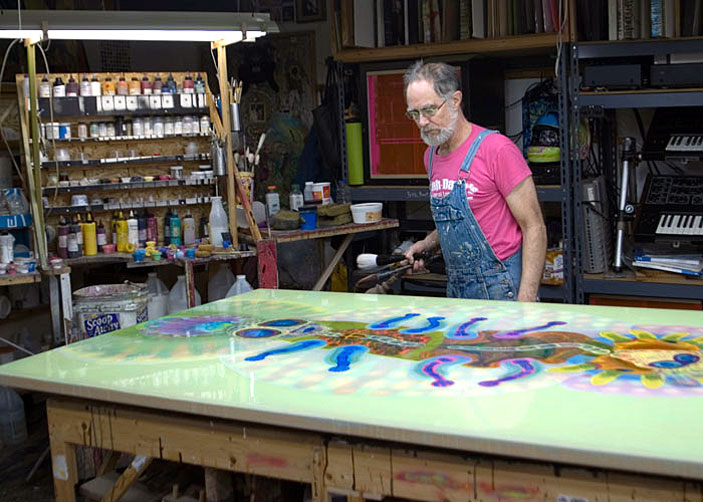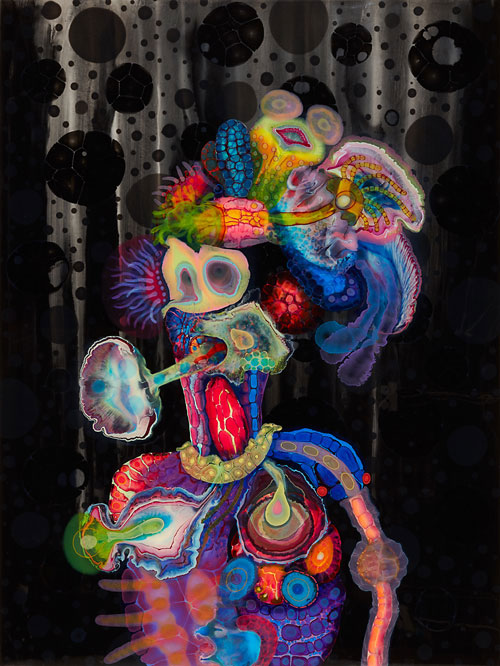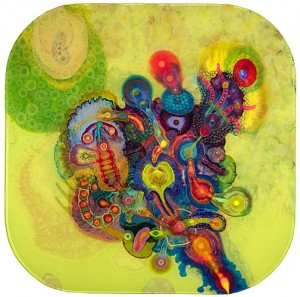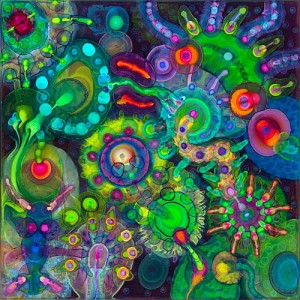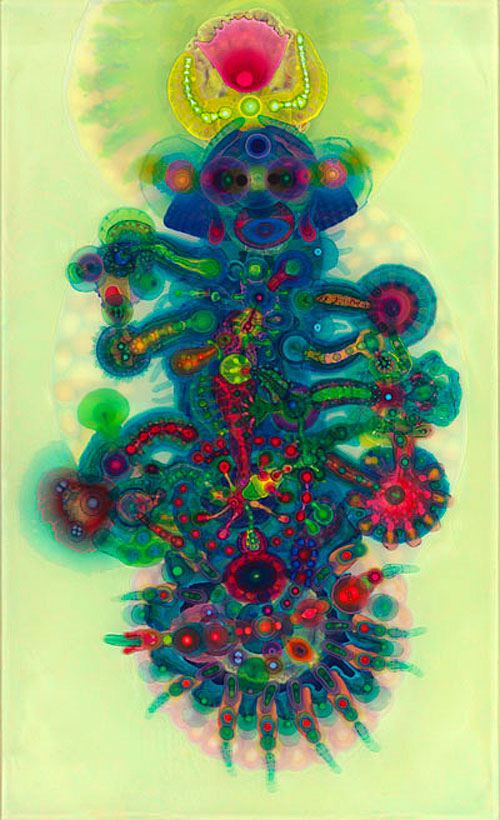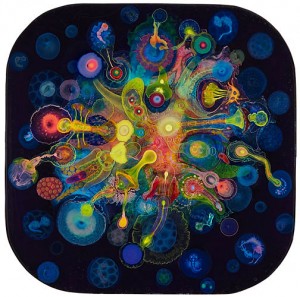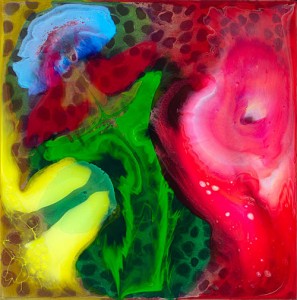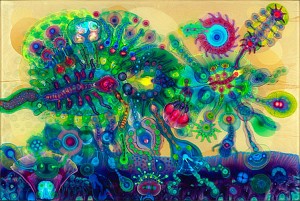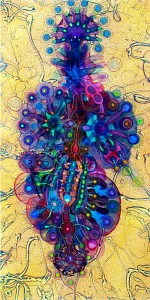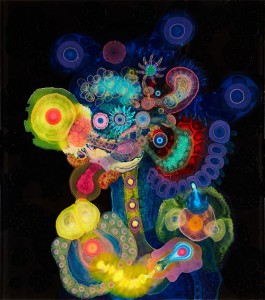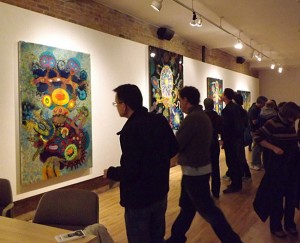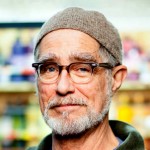Art, // December 28, 2017
Bruce Riley — ARTIST
Interview with artist Bruce Riley —
1. Who are you and what do you do?
My name is Bruce Riley. I am a painter working in Chicago. The paintings I make are process driven. I paint to see where it takes me.
2. Why art?
I grew up watching my brother make art so I copied his activity. It is something that I have just kept doing. Art making, painting in particular, has been a constant in human evolution dating back 42,000 years. I see myself working in that tradition.
3. What is your earliest memory of wanting to be an artist?
Wanting to be an artist is not a decision I ever made. It was self evident from early on. In 1980 I made the decision to be a “professional” artist when I realized I could start taking all my art expenses as a deduction. Although the visual content of my work has changed drastically over the years it still comes from the same place it did when I was a child.
4. What are your favorite subject(s) and media(s)?
My subject is “Nothingness”. I see this as what lies outside of the ever expanding bubble of human knowledge. I do not like to attribute a meaning to my paintings especially when they are in progress. The biggest and most exciting struggle for me in the studio is to conceptually keep things open. In my painting lies the sum total of my human experience. Presuming that I “know” is just human hubris. The titles to my work usually come after the paintings are done. There is an area on the wall in my studio where I write down title possibilities. Usually there is a “looks like” correlation between the painting and a title. I do not mind a definition coming at the end. It did not influence the making of the piece and it creates a connection for people. I’ve been working with water based media since 1992. Until then I was an oil painter. I really do not think the early masters of painting would be using oil if they had the materials that we do today.
5. How do you work and approach your subject?
My process is in constant evolution. Keeping a studio up and running is my first priority. The systems I put in place change as I work. The studio has tables with levelers. There is thirty or more works in progress of all different sizes. My paint workstation is on wheels and gets moved to the tables I’m working on. As paintings are finished, paintings begin. I go into the studio daily. A routine is important. Focusing my thinking function on the logistics of painting allows the painting to self determine. My paint application techniques are experimental and complex. Making art on a daily basis is the hardest work I have ever done. I thrive on the challenge and how this art making activity feeds back into the development of the organism I inhabit.
6. What are your favorite art work(s), artist(s)?
Artists are;
Jan Van Eyck
Gustave Moreau
Francisco Goya
Alice Neel
Friedensreich Hundertwasser
Leonor Fini
Albert Pinkham Ryder
Diane Arbus
Claude Monet
Carol Rama
Balthus
Dante Gabriel Rossetti
Kiki Smith
Salvador Dalí
Richard Dadd
Vincent Van Gogh
Samuel Palmer
Frederic Edwin Church
Ernst Fuchs
Frida Kahlo
Rembrandt
Leonardo da Vinci
Ruth Asawa
Pierre Bonnard
This list goes on and on and on the more I think about it.
Philosophy I would imagine Jiddu Krishnamurti. Book would be “The Vivisector” by Patrick White.
7. What are the best responses you have had to your
I think the best responses to my work are people getting lost in visually exploring the paintings. It’s an active meditation in a way. They give themselves over and disappear for a bit.
8. What do you like about your work?
The independence from unwanted influences and the state of being I’m in when I’m painting. I get to play with color all day long every day if I choose. The universe that is opened to me via art making. But most importantly the vision that is sustain by making art.
9. What advice would you give to other artists?
Control your thought process. And to do this all that needs be done is to quietly watch it without judgment and it will begin to self organize into something amazingly trans human. Life does that.
10. Where do you see yourself in 5-10 years?
If I am still alive I would like to be doing what I am doing now.
LINKS —
Website: www.bruce-riley.com
Facebook: www.facebook.com/bruce.riley1
Instagram: https://www.instagram.com/riley_riley_painter/
Linkedin: https://www.linkedin.com/in/bruce-riley-b289971/
A Documentary: https://www.truestoriessf.com/work-bruce
A Review: http://visualmelt.com/Bruce-Riley



